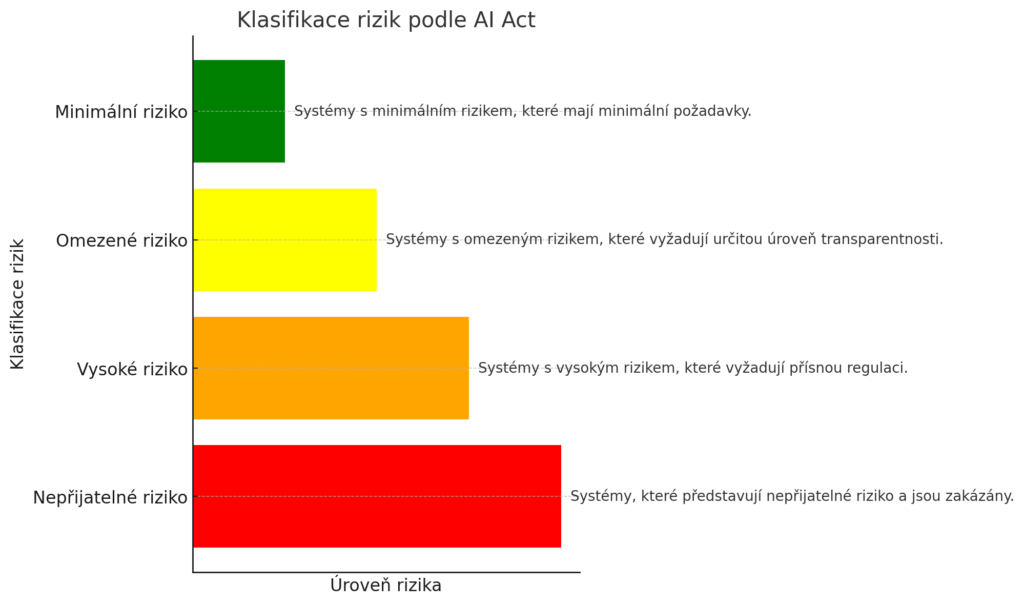Nowadays, when artificial intelligence (AI) is penetrating all industries, the need for regulation and legal framework is more and more urgent. The European Union has come up with a draft regulation known as the AI Act. This legislative move could have a significant impact on companies that use AI technologies, even those that are not directly from the technology sector. What does this mean for businesses and why will they have to deal with it? You can find the official text of the AI Act on the website of the European Parliament here.
Although this text is written from the company's point of view, the main principles and effects of regulation in the article are also relevant for individuals. Or at least they will have an impact on us. GDPR is also a regulation "for businesses", but it affects us all.
Do you like today's connections in the context of the series Black Mirror? Then look at This episode. 🙂
What is the AI Act?
The AI Act is a proposal for a European Union regulation that aims to create a uniform legal framework for the use of artificial intelligence across the EU. The main idea is to ensure that AI systems are safe, transparent and respect the basic rights of citizens.
The AI Act was approved on June 14, 2023 and will come into effect on January 1, 2025. This gives companies time to prepare for the new requirements and adapt their AI systems.
Full effectiveness is not expected until 24 months after regulatory approval, but some parts will be in force sooner. Hence the date of January 1, 2025. These are primarily techniques and tools that could be dangerous. Specifically, it concerns, for example, the banning of artificial intelligence systems that pose unacceptable risks.
Key aspects of the AI Act
- Classification of risks: The AI Act divides AI systems into four categories based on the level of risk – unacceptable risk, high risk, limited risk and minimal risk. Different regulatory requirements are set for each category.
- Transparency and explainability: Businesses will need to ensure that their AI systems are transparent and the results can be explained. This means that users must understand how the AI makes decisions, which may require changes to the design and documentation of AI systems.
- Safety and ethics: AI systems will have to meet high standards of safety and ethics. This includes, for example, data protection and user privacy.
Classification of risks under the AI Act

- Unacceptable risk: Systems that pose an unacceptable risk and are banned.
- High risk: High-risk systems that require strict regulation.
- Limited risk: Limited risk systems that require a certain level of transparency.
- Minimal risk: Minimal risk systems that have minimal requirements.
Impact on businesses
- Compliance with legal regulations: If a company uses AI systems, it will have to comply with new requirements. Failure to comply may result in penalties and fines.
- Reputation and trust: Transparent and ethical use of AI can improve a company's reputation and increase customer trust. Trust is often one of the key success factors in the market these days.
- Innovation and competitiveness: AI Act can be an impetus for innovation in the company. Adoption of new technologies and adaptation to new requirements can lead to increased competitiveness in the market.
What awaits the company
- Audit of AI systems: Companies are awaiting an internal audit of current AI systems and a classification of whether they meet the new requirements of the AI Act.
- Staff training: Employees will need to understand the new requirements and be able to implement them. This may include training in AI ethics and transparency.
- Cooperation with experts: If a business does not have in-house AI experts, it can consider working with external experts who can help implement the AI Act requirements.
In conclusion
The AI Act represents a significant step towards the regulation of artificial intelligence in Europe. For companies, this means not only new challenges, but also opportunities to innovate and improve reputation. On the one hand, of course, this is a complication, but on the other hand, it gives a chance to prepare for changes and use this opportunity to strengthen your position on the market. Hopefully this article has helped you understand what the AI Act means for business, why and how you will need to deal with this regulation. The future of AI is here - be ready for it!


